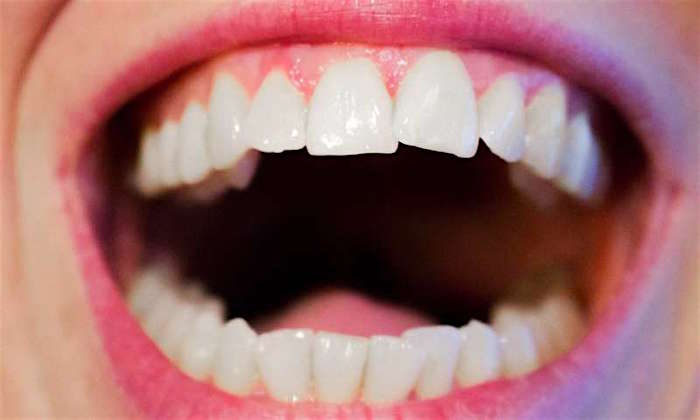 Data from a long-term health study is providing new evidence of a link between advanced gum disease and increased risk of developing cancer. The study, published in the Journal of the National Cancer Institute, examined data from comprehensive dental exams performed on 7,466 people from the late 1990s until 2012. During a follow-up period, 1,648 new cancer cases were diagnosed.
Data from a long-term health study is providing new evidence of a link between advanced gum disease and increased risk of developing cancer. The study, published in the Journal of the National Cancer Institute, examined data from comprehensive dental exams performed on 7,466 people from the late 1990s until 2012. During a follow-up period, 1,648 new cancer cases were diagnosed.
Advanced gum disease, also called periodontitis, is caused by bacterial infection that damages the soft tissue and bone that support the teeth. Previous research has found a link between periodontitis and increased cancer risk, although the mechanism connecting the two diseases is still uncertain.
The study revealed a 24 percent greater risk of developing cancer among people with severe periodontitis, compared to those with mild or no periodontitis at the beginning of the study.
And in patients who had no teeth – often a sign of severe periodontitis – cancer risk increased 28 percent. The highest risk was observed in cases of lung cancer, followed by colorectal cancer.
People with severe periodontal disease were also more than twice as likely to develop lung cancer, compared with others with mild cases of periodontitis. Significantly, researchers noted a stunning 80 percent increase in risk of colon cancer in participants who had no teeth at the start of the study.
“This is the largest study addressing the association of gum disease and cancer risk using dental examinations to measure gum disease prior to cancer diagnosis,” according to lead author Dominique Michaud, Sc.D., professor of public health and community medicine at Tufts University School of Medicine. “Additional research is needed to evaluate if periodontal disease prevention and treatment could help alleviate the incidence of cancer and reduce the number of deaths due to certain types of cancer.”
Michaud noted that the findings were particularly interesting in light of research, including a recent study in Science, which determined that colorectal cancer tissues contain bacteria that are present in the mouth, including bacteria that have been associated with periodontal disease.
The researchers also uncovered a small increase in the risk of pancreatic cancer in patients with severe periodontitis. Although not significant statistically, the association has been seen in other similar studies, including a number of studies led by Michaud of Tufts.
The research team accounted for the impact of smoking among the participants, since people who smoke are more likely to get periodontal disease, and smoking raises the risk of lung and colon cancers.
“When we looked at data for the people who had never smoked, we also found evidence that having severe periodontal disease was related to an increased risk of lung cancer and colorectal cancer,” said Elizabeth Platz, of the Johns Hopkins Kimmel Cancer Center.
The researchers found no links between increased risk of breast, prostate or blood/lymphatic cancer and periodontitis. The link between periodontitis and increased cancer risk was weaker or not apparent in African-American participants from the ARIC study, except in cases of lung and colorectal cancer. “Additional research is needed to understand cancer-site specific and racial differences in findings,” wrote the authors. The researchers caution that the study was limited in size for subgroup analyses, and less common cancers. The findings, however, suggest the need for further study.
Source: Dominique S Michaud, Jiayun Lu, Alexandra Y Peacock-Villada, John R Barber, Corinne E Joshu, Anna E Prizment, James D Beck, Steven Offenbacher, Elizabeth A Platz. Periodontal Disease Assessed Using Clinical Dental Measurements and Cancer Risk in the ARIC Study. JNCI: Journal of the National Cancer Institute, 2018; DOI: 10.1093/jnci/djx278











